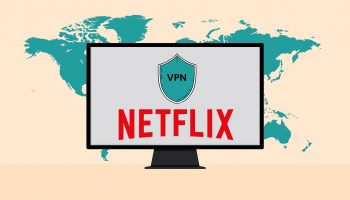In the digital age, protecting online privacy and maintaining anonymity has become a priority for many internet users. Two of the most commonly used tools in this pursuit are Virtual Private Networks (VPNs) and Proxy Servers. While both serve the essential purpose of altering your online footprint, they are fundamentally different in their operation and the level of security they offer.
This blog aims to demystify these two tools, outlining the key differences between a VPN and a proxy. Whether you’re a casual internet user, a privacy advocate, or an individual prioritizing online security, recognizing these distinctions is vital when selecting the appropriate tool for your requirements.
Understanding the Basics
Before getting into the complexities of a VPN and proxy, let’s first understand what both of these terms mean:
Proxy Servers: In its most basic form, a proxy server is an intermediary between your device and the internet. When employing a proxy, your internet traffic is directed through the proxy server before reaching its intended destination. This means that to the external world, your online activity appears to be coming from the proxy server’s IP address, not your own. Proxies are often used to bypass geo-restrictions or access content unavailable in the user’s country. However, they do not inherently encrypt your data, leaving a gap in security.
VPN (Virtual Private Network): In comparison, a VPN extends a private network over a public network, facilitating the transmission and reception of data across shared or public networks as though your computing devices were directly connected to the private network. This increases privacy and security by encrypting all data that passes through the VPN. Unlike proxies, VPNs secure and privatize your internet connection, not just your web browsing activity.
Key Differences Between VPN and Proxy
Understanding their key differences is crucial when choosing between a VPN and a proxy. Here are the main areas where they diverge:
- Privacy and Security: VPNs offer a higher level of security compared to proxies. While a proxy server only masks your IP address, a VPN encrypts all the data transmitted over your connection. This encryption is critical for protecting sensitive information from hackers and other cyber threats. Proxies lacking encryption are more vulnerable to security breaches.
- Encryption: This is where VPNs truly stand out. A VPN encrypts your internet connection, ensuring that all data, whether from browsing, apps, or services, is secured. In contrast, most proxies do not encrypt your data, meaning sensitive information might be exposed to ISPs, government surveillance, or cyber criminals.
- Network Configuration: A VPN affects your entire device’s network connection, routing all traffic through the VPN server. On the other hand, proxy servers typically only reroute the traffic of a specific application or browser.
- Anonymity: Both VPNs and proxies provide a degree of anonymity by hiding your real IP address. However, the lack of encryption with most proxies makes them less effective in maintaining complete anonymity. VPNs, encrypting all traffic, offer more robust protection of your identity online.
- Usage Scenarios: Proxies are often suitable for bypassing simple geo-restrictions and accessing region-specific content. However, for tasks that require higher security, like online banking, shopping, or handling sensitive data, a VPN is the better choice due to its encryption capabilities.
Advantages of VPN Over Proxy
While both VPNs and proxies provide certain levels of anonymity and access to restricted content, VPNs offer several significant advantages:
- Enhanced Security Features: VPNs provide end-to-end data encryption, a fundamental aspect not available in most proxy services. This encryption ensures your internet connection is secure, protecting sensitive information from cyber threats.
- Reliability and Stability: VPNs are generally more reliable and stable than proxy servers. A high-quality VPN service like BitStream VPN offers consistent connection speeds and rarely drops the connection, ensuring a seamless online experience.
- Access to Restricted Content: While proxies and VPNs can offer access to geo-restricted content, VPNs are usually more effective in bypassing stringent geo-blocks. This is particularly important for users who want to access a wide range of international content, including streaming services like Netflix, Hulu, or BBC iPlayer.
- BitStream VPN’s Features: BitStream VPN provides additional features not typically found in proxy services. These encompass an extensive array of server locations, robust encryption protocols, a stringent no-logs policy, and specialized applications for a variety of devices. These attributes contribute to the heightened security and user-friendliness of BitStream VPN, establishing it as a superior option for individuals prioritizing online privacy and security.
Choosing the Right Tool for Your Needs
Using a VPN or a proxy largely depends on your specific online needs and concerns. Here are some guidelines to help you make the right choice:
- If your primary concern is to bypass simple geo-restrictions for streaming or browsing, a proxy might suffice.
- A VPN is strongly recommended for activities involving sensitive data or requiring a high level of security, such as online banking, shopping, or handling confidential information.
- Always consider the quality and reputation of the VPN or proxy service. Avoid free or low-quality services that might compromise your security.
- Evaluate the features offered, such as encryption strength, server network, privacy policy, and user support, to ensure they meet your requirements.
Conclusion
The choice between a VPN and a proxy depends on your specific online needs, but the differences are clear. A proxy may provide a quick and easy solution for simple anonymity or to bypass basic content restrictions. However, for comprehensive security, privacy, and reliable access to a broader range of content, a VPN is the better choice.
VPNs offer robust encryption, protect your internet connection, and provide a stable and reliable online experience. They are essential for anyone serious about safeguarding their online privacy and security. BitStream VPN, with its advanced security features, diverse server locations, and commitment to user privacy, stands out as a prime example of what a VPN should offer.




